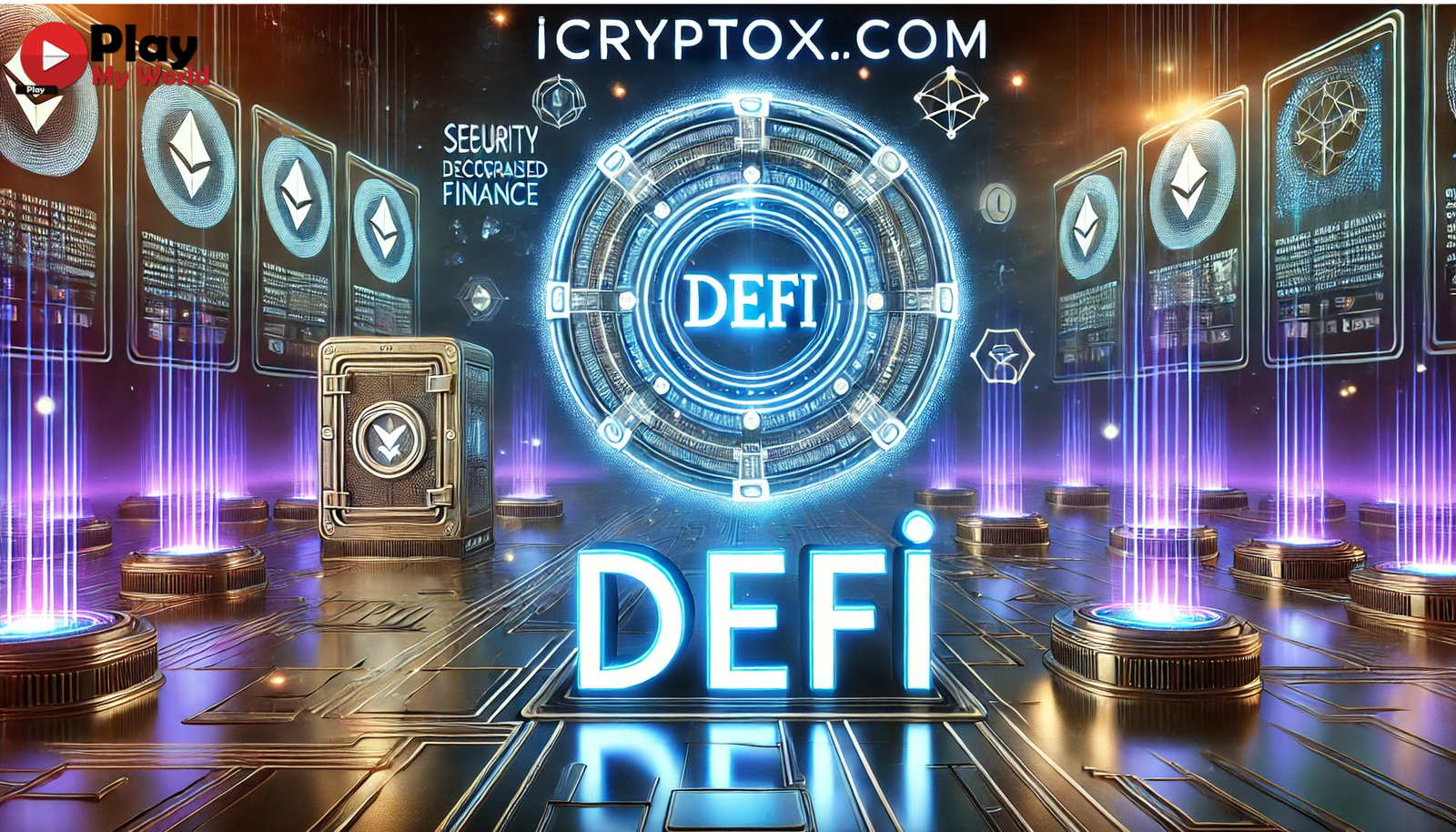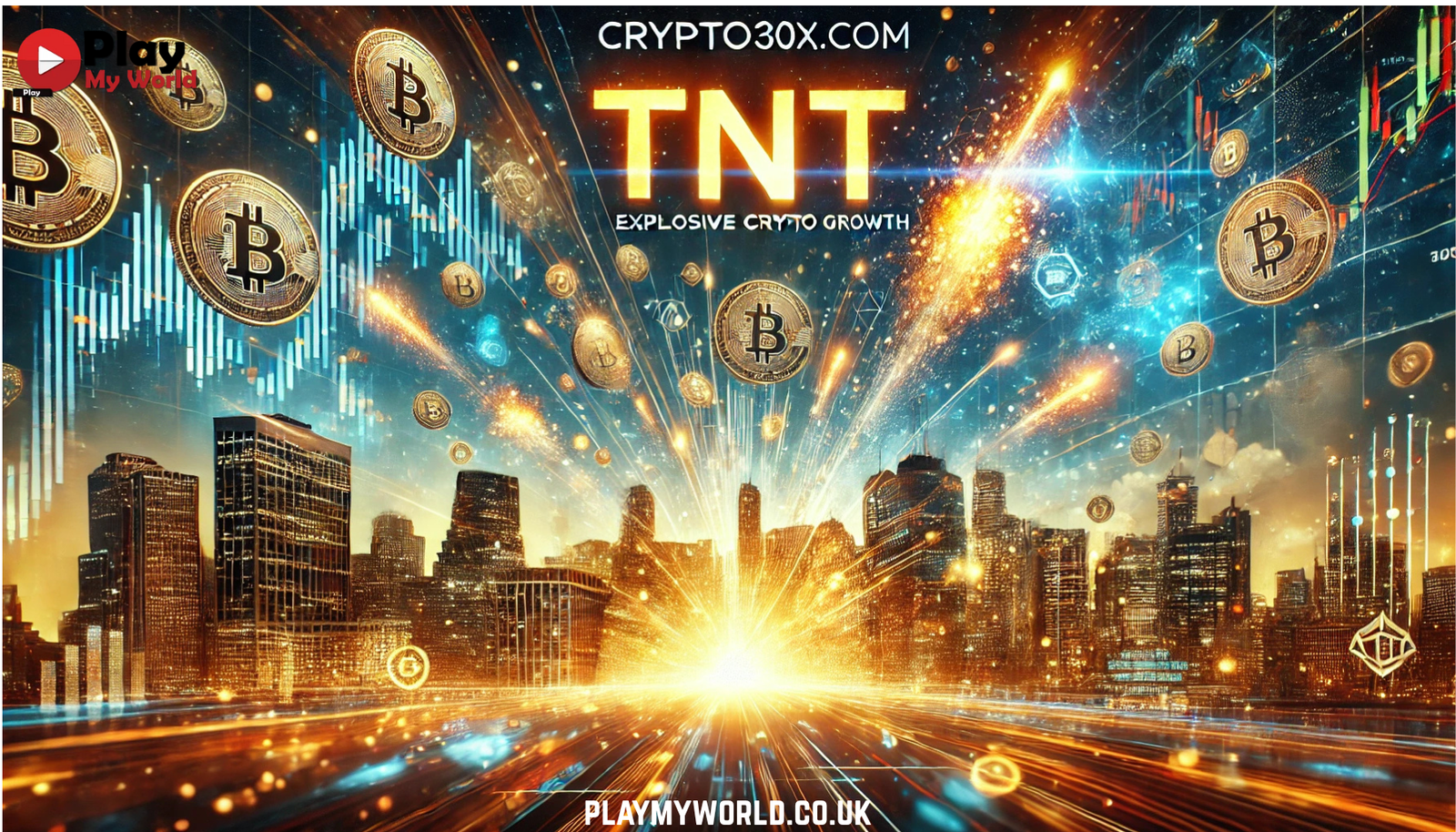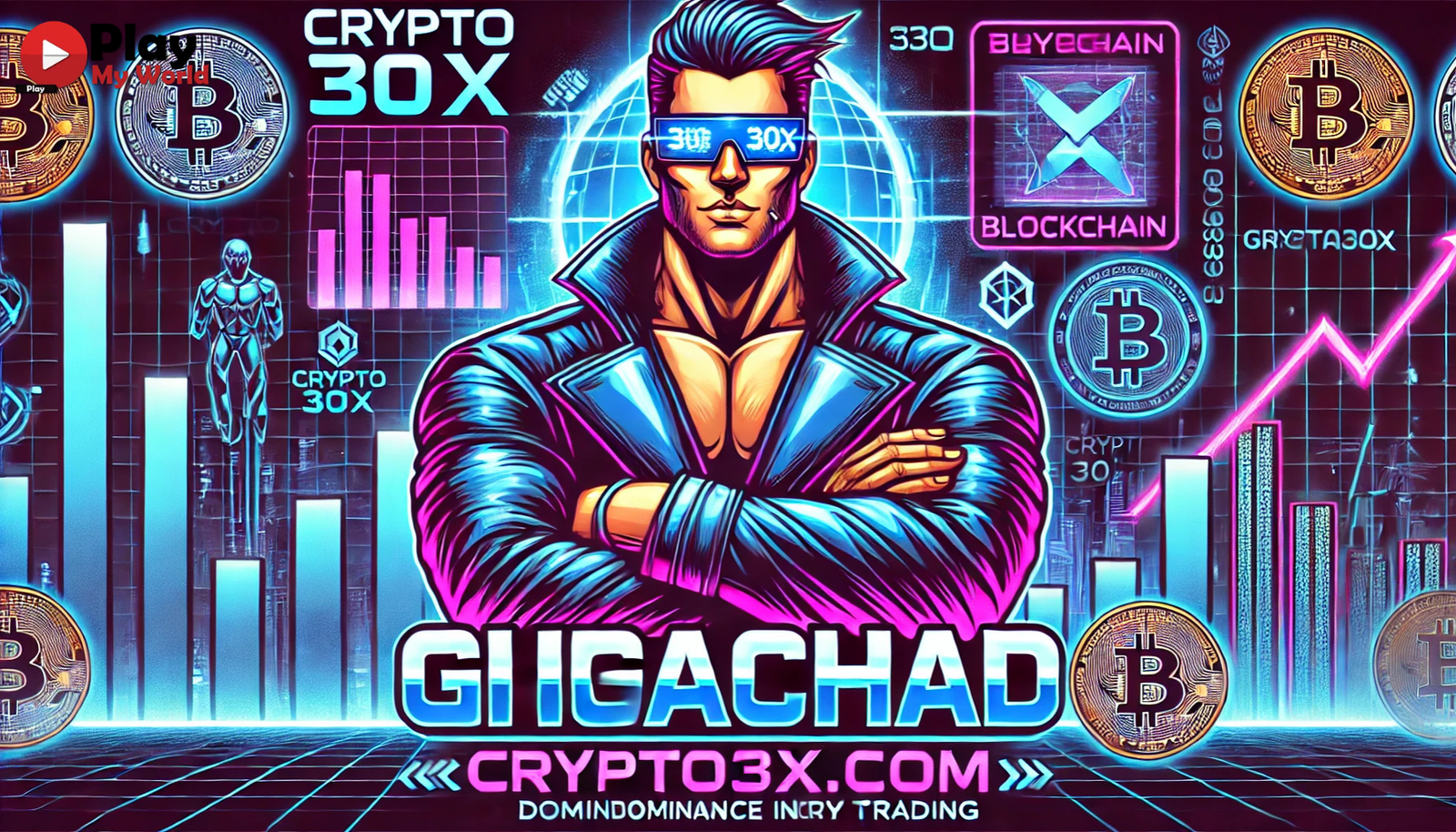Introduction
Decentralized Finance (DeFi) is reshaping the global financial landscape by providing open, permissionless, and transparent financial services. It operates on blockchain networks, eliminating intermediaries and allowing users to access financial products such as lending, borrowing, and trading without traditional banks.
iCryptoX.com is a platform that provides educational resources, insights, and tools to help users navigate the world of DeFi. It covers various aspects of DeFi, including DeFi wallets, decentralized exchanges (DEXs), yield farming, stablecoins, and risk management.
This guide explores how iCryptoX.com helps users understand and utilize DeFi effectively.
Understanding DeFi and Its Core Components
DeFi Wallets: Secure Storage for Digital Assets
A DeFi wallet is essential for interacting with decentralized applications (dApps) and storing digital assets. Unlike custodial wallets provided by centralized exchanges, DeFi wallets give users full control over their private keys and funds.
There are two main types of DeFi wallets:
- Software Wallets: These include MetaMask, Trust Wallet, and Coinbase Wallet, offering easy access to DeFi applications.
- Hardware Wallets: Devices like Ledger and Trezor provide enhanced security by storing private keys offline.
Users must securely store their seed phrases, as losing them results in the permanent loss of funds.
Decentralized Exchanges (DEXs): Trading Without Intermediaries
Decentralized exchanges allow users to trade cryptocurrencies without relying on a central authority. They operate on smart contracts, enabling peer-to-peer transactions.
Popular DEXs include:
- Uniswap: An Ethereum-based exchange using an automated market maker (AMM) model.
- PancakeSwap: A Binance Smart Chain-based DEX offering lower fees and fast transactions.
- SushiSwap: A multi-chain DEX providing additional features like staking and yield farming.
When trading on a DEX, users should consider factors such as transaction fees, slippage, and liquidity before executing a trade.
Yield Farming: Earning Passive Income with Crypto
Yield farming is a DeFi investment strategy where users provide liquidity to DeFi platforms in exchange for rewards. It involves depositing crypto assets into liquidity pools to earn interest or governance tokens.
Steps to start yield farming:
- Select a DeFi platform such as Aave, Compound, or Yearn Finance.
- Deposit crypto assets into a liquidity pool.
- Earn interest or rewards based on the platform’s annual percentage yield (APY).
- Withdraw earnings or reinvest them for compounded growth.
While yield farming offers high returns, it comes with risks such as impermanent loss and smart contract vulnerabilities.
DeFi Lending and Borrowing: Accessing Financial Services Without Banks
DeFi lending platforms allow users to lend their crypto assets and earn interest or borrow funds by providing collateral. These platforms use smart contracts to facilitate transactions without intermediaries.
Popular DeFi lending platforms:
- Aave: Offers flash loans, stable interest rates, and lending pools.
- Compound: Uses an algorithmic model to determine interest rates.
- MakerDAO: Allows users to borrow the DAI stablecoin by providing collateral.
Borrowers must maintain a healthy collateral ratio to avoid liquidation.
Also Read: eCrypto1.com Crypto Wallets: A Complete Guide to Secure Cryptocurrency Management
Security and Risk Management in DeFi
DeFi platforms offer financial freedom but also come with risks. Users must take precautions to protect their assets.
Common risks include:
- Smart Contract Vulnerabilities: DeFi platforms operate on smart contracts, which may contain bugs or exploits. Users should choose platforms that undergo security audits.
- Impermanent Loss: Liquidity providers may experience losses when the value of their deposited assets fluctuates.
- Rug Pulls and Scams: Some DeFi projects are fraudulent, leading to the loss of investor funds. It is essential to research projects before investing.
- Regulatory Uncertainty: Governments worldwide are still developing regulations for DeFi, which may impact platform operations.
To mitigate risks, users should diversify investments, use hardware wallets for security, and stay informed about DeFi developments.
Frequently Asked Questions (FAQs) About iCryptoX.com DeFi
What is iCryptoX.com?
iCryptoX.com is an online platform that provides educational resources, insights, and tools for understanding and using Decentralized Finance (DeFi). It covers topics such as DeFi wallets, decentralized exchanges, yield farming, lending, borrowing, and security best practices.
How does iCryptoX.com help users in DeFi?
iCryptoX.com offers step-by-step guides, market insights, and risk management strategies to help users navigate DeFi safely. It provides detailed explanations of how DeFi platforms work, how to earn passive income, and how to protect funds from scams and hacks.
What is DeFi, and how does it differ from traditional finance?
DeFi, or Decentralized Finance, is a financial system built on blockchain technology that eliminates intermediaries like banks. Unlike traditional finance, DeFi allows users to trade, lend, borrow, and invest directly using smart contracts, ensuring transparency, security, and global accessibility.
What is a DeFi wallet, and which one should I use?
A DeFi wallet is a digital wallet that allows users to store, send, and receive cryptocurrencies while maintaining full control over their funds. Popular DeFi wallets include:
MetaMask (Ethereum-based DeFi applications)
Trust Wallet (Multi-chain support)
Coinbase Wallet (User-friendly for beginners)
Ledger & Trezor (Best for hardware security)
What are decentralized exchanges (DEXs)?
Decentralized exchanges (DEXs) are platforms that enable peer-to-peer crypto trading without intermediaries. Unlike centralized exchanges, DEXs allow users to trade directly from their wallets. Examples include Uniswap, PancakeSwap, and SushiSwap.
Conclusion
iCryptoX.com serves as a valuable resource for individuals looking to explore and understand DeFi. By providing in-depth guides, market insights, and risk management strategies, it helps users make informed decisions in the decentralized finance ecosystem.
Users can benefit from DeFi by securing their digital assets with reliable wallets, trading on decentralized exchanges, earning passive income through yield farming, and participating in lending and borrowing protocols. However, it is crucial to remain cautious, conduct thorough research, and adopt security measures to protect investments.
For further learning and updates on DeFi, iCryptoX.com offers expert insights and practical resources.




